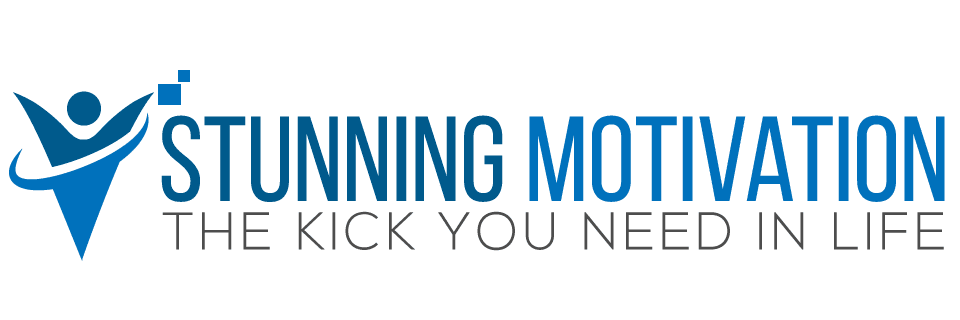Unless you’ve been living under a boulder for the last couple of years, you know there are several worldwide crises going on at any given moment.
And, the predictions for the future don’t look too good from an economic standpoint.
Everyone is worried, especially now when things look like some of the world’s largest economies are heading toward a recession.
But, leaving aside the sheer volume of once-in-a-lifetime events that are happening, economic crises are nothing new.
The current generation of workers has gone through at least two, and chances are they’ll catch another one before the time comes for their retirement.
So, is there anything you can do to protect your job and earnings? Yes! You can take control of your life and financial well-being by constantly working to improve yourself and make your career recession-proof.
Here are a few tips to get you started:
1. Build Up Your Skill Set

Each work experience will teach you a set of skills, but the ones you need the most are transferable skills. These are skills you can use in various roles, across industries, and regardless of the company or organization employing your services.
In many cases, transferable skills are more important than your job title, but we think these two work together. A more advanced job title (such as something with “manager” in it) creates more interview opportunities, while your skill set helps you get the job and shine at it.
The great news is that most soft skills are transferable. This includes communication, social integration, negotiation, creative and analytical thinking, leadership, management, self-motivation, productivity, and more.
The best approach to making your career recession-proof is to find the skills that matter the most in your line of work and polish them. However, you should also work on adding new skills and applying them in different contexts.
2. Choose a Recession-Proof Career

Some jobs will be needed regardless of economic hardship, so if you’re looking for a new career path or you’re just starting, you should have a look.
A few examples include medical careers, teachers, social workers, mental health professionals, accountants, legal professionals, public transportation workers, and IT workers. However, this doesn’t mean that jobs in sales or marketing will drop in value during a recession.
In fact, if that happens, you will be able to use your marketing skills to help your company find new niches and approach new target audiences. So, if you’re interested in this line of work, check out the best entry-level marketing jobs according to Lensa.
3. Build an Online Reputation

The online environment gives every individual a fantastic chance to increase their visibility and show off their skills. So whether you like writing, making videos, or simply taking photos, don’t hesitate to put your talents out into the online world.
You should also have a professional profile on networks like LinkedIn, where you can connect with companies and professionals that pique your interest.
4. Build a Strong Network

One way of standing out and practicing your soft skills is through networking. Plus, if you manage to build a solid online reputation, there’s also a great chance of finding other professionals interested in discussing and developing similar topics.
The secret to having a strong network is to be open-minded and friendly with everyone who comes your way.
You shouldn’t target people within a specific social and professional niche because this creates a bubble that may isolate you from the rest of the world. Instead, work on connecting with professionals from various walks of life and try to learn as much as possible from each of them.
Read: How to Surround Yourself with Positive People
5. Stand Out at Your Current Job

If you want to make sure your employer will want to keep you in case of a recession, make yourself indispensable. For this, work on improving your time management and make sure your performance is always top-notch.
Also, make yourself as visible as possible by volunteering for additional tasks, subscribing to training when available, and making suggestions that help improve overall productivity.
Of course, this doesn’t mean you should distance yourself from the team.
After all, teamwork skills are essential in today’s work environment. You have to find the balance between being a good team member and standing out from the crowd.
6. Get Out of Your Comfort Zone

This one may be one of the most difficult tasks to achieve, but it’s essential to your growth as an individual and a professional. That’s because everything outside your comfort zone is the so-called growth zone, where real development can happen.
The best way to do this is by doing activities you are not used to doing. It’s one of the reasons why so many people train for and run marathons even though they don’t have a chance at winning.
It’s about getting out of the comfort zone and training your mind to embrace change and be open to new stimuli.
When you do this, you get a new perspective of the world and learn that there’s more than your own bubble. As the landscape around you changes, so do your thinking processes, which is where new ideas and thoughts start coming around.
Read: 15 Ways How to Step Out of Your Comfort Zone and Live Great
7. Continue to Learn

Learning is a life-long process, whether you like it or not. However, conscious and applied learning is an effort we need to undertake regularly and of our own volition.
This happens by reading, watching documentaries and other video materials on a topic of interest, taking classes, and/or participating in activities that develop our skills and knowledge.
As an adult, this level of learning may be a bit cumbersome because you have to dedicate time and mental effort (plus some financial resources). However, if you create a habit out of it and apply it regularly, it will become second nature.
As a result, it will be easier to continue your journey of growth after school education, which will provide a series of advantages in your professional life.
So don’t stop learning. Also, make sure to stay up to date with the latest developments in your field of work. This aspect is crucial in today’s world, especially if your field is influenced by technological developments.
Read: How To Improve Yourself Everyday By Setting Benchmark Goals
Takeaway
The best way to make your career recession-proof is to constantly seek improvement of your skills and knowledge. Also, it helps to connect with other professionals who have similar goals as they will help keep you motivated and interested in the long run.
Furthermore, don’t forget to take advantage of social media and professional networks where you can build a reputation and work on polishing your skills. Things are changing at an incredibly fast pace in most fields today, so it’s crucial that you keep up if you want to stay relevant and indispensable.


